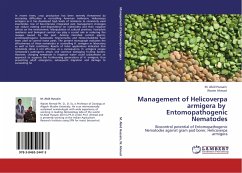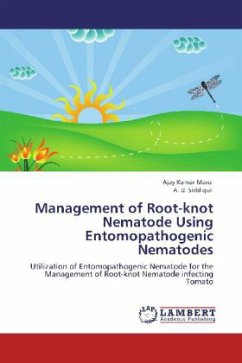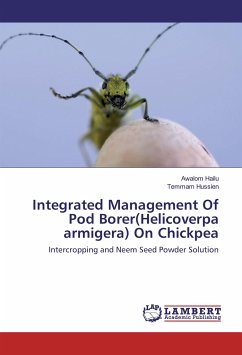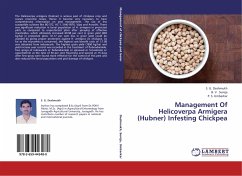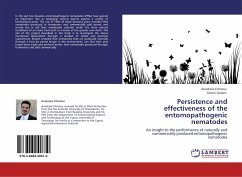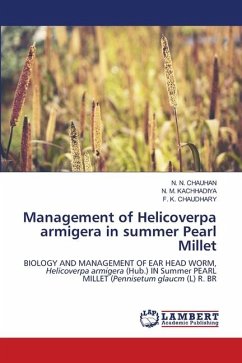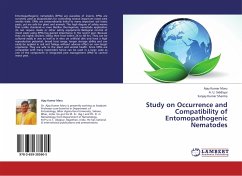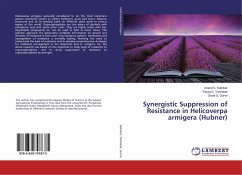In recent times, crop production has been severely threatened by increasing difficulties in controlling American bollworm, Helicoverpa armigera as it has developed high levels of resistance to commonly used insecticides. Use of bio-intensive integrated pest management strategies can reduce existing over-dependence on insecticides and their negative effects on the environment. Manipulation of cultural practices, host-plant resistance and biological control can play a crucial role in reducing the ravages caused by this pest. Among microbial control agents, entomopathogenic nematodes (Steinernema and Heterorhabditis) have been used to control insect pests. The present monograph evaluates the effectiveness of these nematodes in controlling H. armigera in laboratory as well as field conditions. Results of foliar applications indicated that nematode alone is not effective; as a consequence, H. armigera escape nematode s pathogenic attack and continue damaging fruiting bodies. However, charging nematode in irrigation water could substantiate an approach to suppress the forthcoming generations of H. armigera; thus preventing adult emergence, subsequent migration and damage to succeeding ho
Bitte wählen Sie Ihr Anliegen aus.
Rechnungen
Retourenschein anfordern
Bestellstatus
Storno

